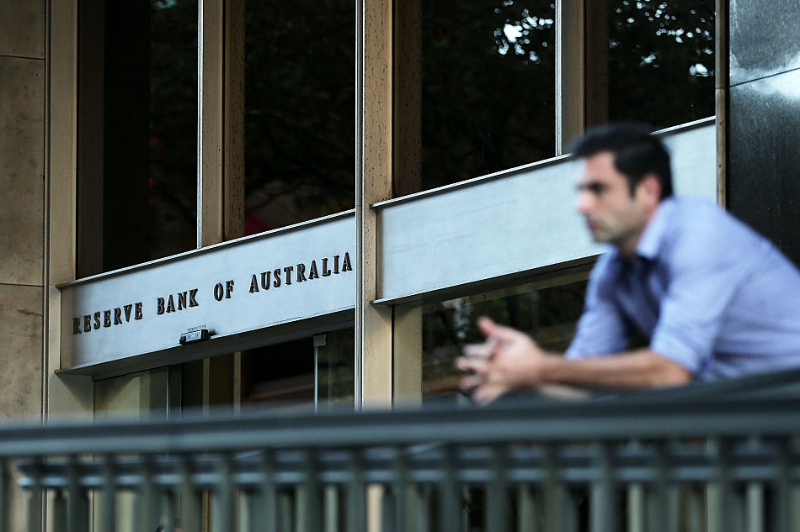Keywords: Western Literature
-

ECONOMICS
- David James
- 22 March 2022
1 Comment
Russia’s invasion of Ukraine has led to severe financial sanctions being imposed on the country that are likely to have lasting consequences. Problem is, they may not be the ones the sanctioners are expecting. They may even come to regret what they have done.
READ MORE 
-

ECONOMICS
- David James
- 01 March 2022
3 Comments
Australia’s Reserve Bank mainly concentrates on keeping inflation within an acceptable range and maintaining a high level of employment. Social equity has never been considered to be part of its mandate. It should be. Interest rates have been the biggest cause of economic and social division in Australia, not just between rich and poor, but also between older and younger generations.
READ MORE 
-

ECONOMICS
- David James
- 31 January 2022
5 Comments
There is a great deal of commentary about the growing importance of artificial intelligence, or AI, especially in business circles. To some extent this is a self-fulfilling prophecy — if people think something will have a seminal effect then it probably will. But if the supposed commercial benefits are significant, the dangers are potentially enormous.
READ MORE 
-

RELIGION
- Michael Furtado
- 11 November 2021
63 Comments
Every Australian diocese and parish already has its particular subcultural identity that inflects its liturgy. Celebration, being the authentic hallmark of a liturgy that reflects identity, must keep pace with a theology that also incorporates the diverse cultural space that the young inhabit.
READ MORE 
-

RELIGION
- Andrew Hamilton
- 21 October 2021
26 Comments
One of the challenges facing churches today has to do with tradition. Tradition is a sometimes charged word, but it refers to an everyday social need. It has to do with how a community passes on its way of life and its understanding of authoritative writings that shape it. The word itself can refer both to what is passed on and to the process of passing it on. The challenge of passing on a tradition is perennial. Both ways of living and writings reflect the culture of their own time and so need to be translated into the changing languages of later cultures.
READ MORE 
-

ECONOMICS
- David James
- 12 October 2021
3 Comments
Over the last two years, money printing has created the illusion of strength in savings. But when reality resurfaces, and actual returns are required from actual economic and business activity, the global financial system will come under extreme stress.
READ MORE 
-

ECONOMICS
- David James
- 07 September 2021
4 Comments
There is a three-way battle looming over the future of money and the stakes could scarcely be higher. Conventional money, mainly debt created by banks — the ‘folding stuff’ is only a tiny proportion of the total — is in trouble. Total global debt is now so large relative to the world economy it cannot be serviced, which is why monetary authorities have resorted to dropping interest rates. When they almost hit zero, the next step was quantitative easing (QE): printing money by getting the central bank to buy back government and corporate bonds and putting them on its ‘balance sheet’.
READ MORE 
-

ECONOMICS
- David James
- 12 August 2021
4 Comments
The biggest mystery of the financial markets is why, when the monetary authorities have been printing money with their ears pinned back, is inflation for the most part not a problem? What happens with inflation is crucial to the short-term survival of the whole system. Global debt, which is running at well over 300 per cent of global GDP, is only sustainable because interest rates are exceptionally low (the base rate in Australia is only 0.1 per cent). And interest rates are low because inflation is not a problem.
READ MORE 
-

ECONOMICS
An often overlooked fact about the financial system is that it entirely depends on trust. When trust starts to evaporate, especially between the big players such as banks and insurance companies, the whole artifice is put into peril. Trust in the system is now at an extreme low and that points to extreme danger.
READ MORE 
-

AUSTRALIA
- Margaret Somerville
- 03 June 2021
80 Comments
The case against euthanasia is much more difficult to promote, not because it is weak — it is not — but because it is much more complex.
READ MORE 
-

AUSTRALIA
- Margaret Somerville
- 03 June 2021
9 Comments
No one on either side of the debate wants to see people suffer and the euthanasia debate is not about if we will die — we all will at some point. The debate is about how we will die and whether some ways of dying, namely euthanasia, are unethical and dangerous, especially to vulnerable and fragile people, and destructive of important shared values on which we base our societies.
READ MORE
-

RELIGION
- Gerald O'Collins
- 20 May 2021
24 Comments
Over forty years ago I drew on the doctoral work of Bridget Puzon to produce The Second Journey and reflect on midlife journeys. Human history, as I realised then and later, throws up everywhere examples of such journeys: from Abraham and Sarah to Moses, from Paul of Tarsus to Mother Teresa of Calcutta, from Dante Alighieri to Eleanor Roosevelt, from John Wesley to Jimmy Carter, from John Henry Newman to Dietrich Bonhoeffer.
READ MORE 